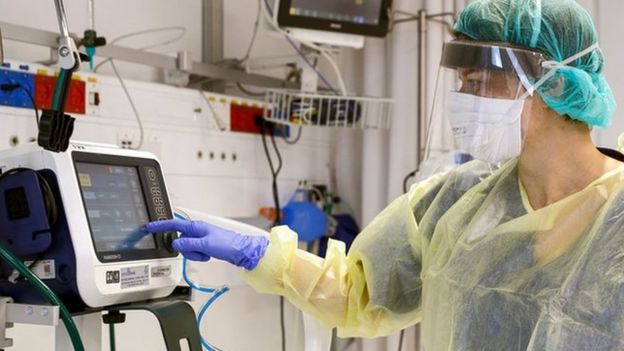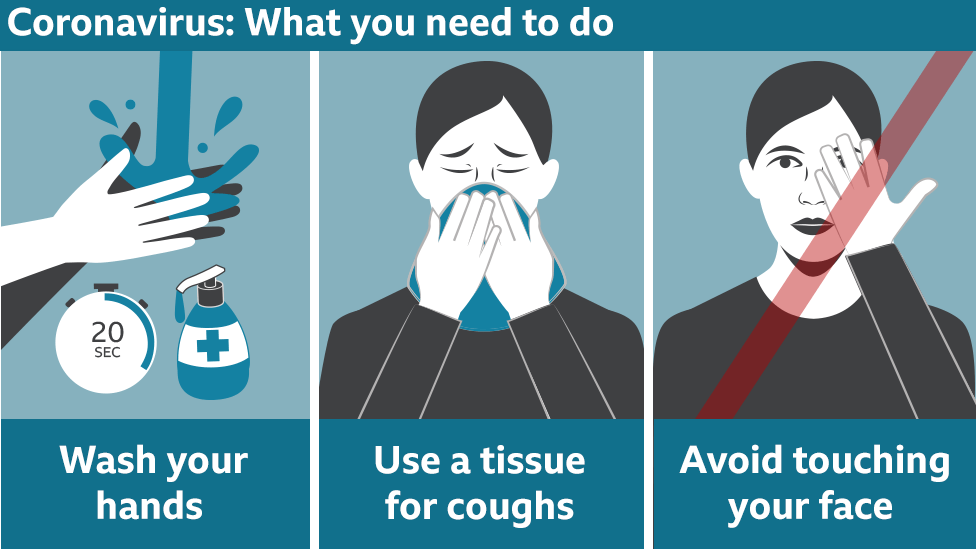Featured Post
- Get link
- X
- Other Apps
One of Wales's most eminent doctors has said we are in "a precarious position" with almost two million people subject to new Covid restrictions.
Baroness Ilora Finlay said people needed to take personal responsibility to stop the spread of the virus.
She told BBC Wales that without quick action the NHS would become "completely overwhelmed".
Eleven of Wales' 22 council areas, including Cardiff and Swansea, are in local lockdown with tighter rules.
"I think that the Welsh Government have got a very difficult job," said Baroness Finlay, who is a Bevan Commissioner, a member of a group of independent experts that provides advice on health and care in Wales.
"We have to get the message across to everybody in the population that they have personal responsibility for breaking the chain of transmission," she said.
"It isn't that the government can do it, it isn't that some other body can do it - it's down to each and every one of us."
On Monday evening, Neath Port Talbot, Torfaen and Vale of Glamorgan joined eight other areas in lockdown in Wales.
Restrictions mean no travel outside council boundaries other than for work, education or medical emergencies, with no indoor mixing allowed and no alcohol sales after 22:00.
"This isn't about breaking rules," said Baroness Finlay.
"This is about caring about the people who you love, who matter to you and realising that if you take that virus home, or you give it to somebody who you're fond of and love, and they are desperately sick, you live with that guilt for the rest of your life.
"This isn't transient. People who are bereaved will live with this for the rest of their lives."
- Has Covid-19 changed the way we talk about death?
- My neighbours are breaking the rules - what should I say?
Baroness Finlay also said testing was "not a panacea" and following rules around social distancing and hand-washing were more important.
"I think that the problem with the message around testing is that bizarrely it can give you a false sense of security.
"People think if they've got a negative test, they're okay. It doesn't mean that.
"A negative test maybe means that you're at the beginning and you're just not producing enough virus for it to be picked up yet.
"Testing does not give you a free pass," she said.
 Image copyrightGETTY IMAGES
Image copyrightGETTY IMAGESBaroness Finlay said she was concerned NHS staff were "exhausted" after responding to the first wave of the pandemic.
https://www.uplabs.com/users/freerobuxgenerator365/
https://www.uplabs.com/users/dragoncityhack1/
https://www.uplabs.com/users/pixelgun3dhackcoins/
https://www.uplabs.com/users/homescapeshackcheats/
https://www.uplabs.com/users/subwaysurfershack/
https://www.nwsaalumni.net/event/fortnite-free-v-bucks-generator-online-100-working
"It isn't about paying them all, or going out and clapping, or whatever. It's about recognising that we must do all we can to flatten that curve, to not have that pressure," she said.
And as one of Wales' leading end-of-life care specialists she is calling for health organisations not to impose a blanket ban on families visiting due to coronavirus restrictions going forward.
During the peak it was not uncommon for next of kin be prevented from spending their final hours with their loved ones.
"I think we need to have a much more nuanced, gentle, compassionate approach to how we manage people who are dying and those who love them," she said.
"They want to be with them [at the end], they want to sit with them, of course they do.
"And I worry that we may have got the balance wrong and we need to get it right."

Comments
Post a Comment